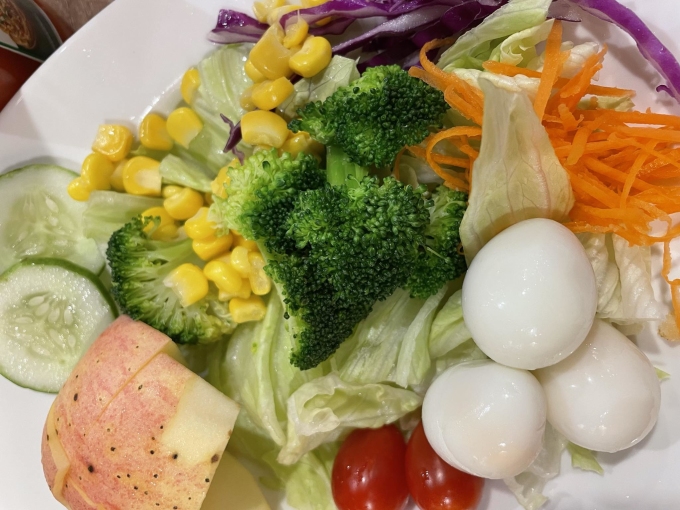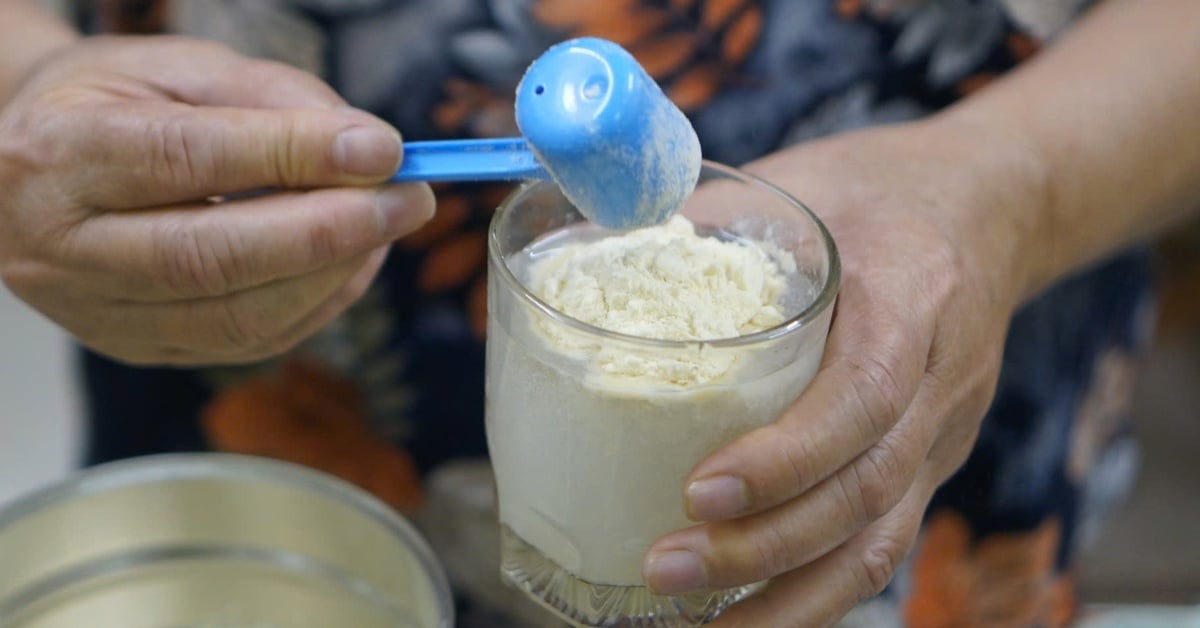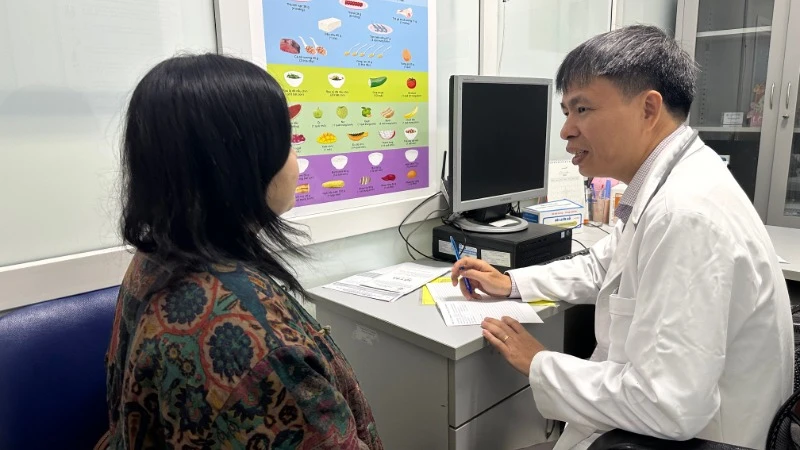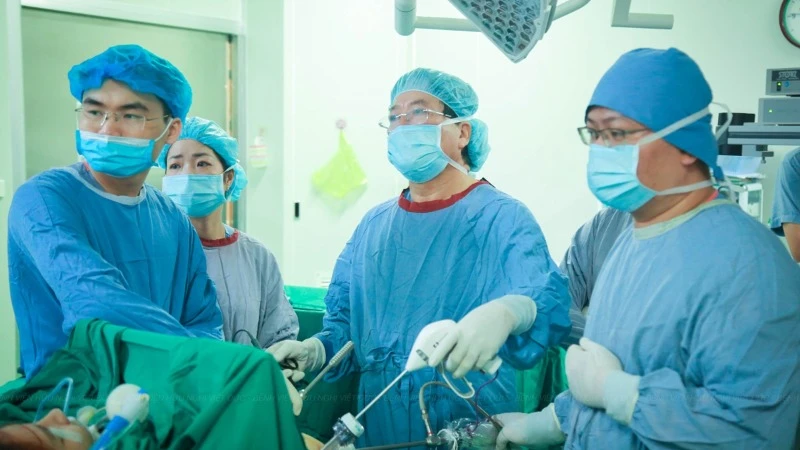Middle-aged women who eat fewer calories and more fiber, protein, and omega-3 fatty acids may benefit from better overall health and weight control.
According to the National Institute on Aging, menopause is the transitional period after the end of the menstrual cycle due to the natural decline of female reproductive hormones such as estrogen and progesterone. Menopause usually occurs between the ages of 45 and 55, and the entire transition can take 7 years or more.
Hormonal changes contribute to a number of problems such as hot flashes, mood swings, weight gain, and decreased bone strength. Paying attention to your diet can help menopausal women control their weight and feel more comfortable.
Pay attention to calorie intake
Women's bodies change as they age, and so do their calorie needs. A calorie-controlled diet can help balance their intake and help them manage their weight better. According to the Mayo Clinic , women in their 50s should eat 200 fewer calories per day to maintain their weight. Eating more whole, plant-based foods also supports a healthy weight.
To control hunger during the day, women can eat smaller meals, snack regularly on fruits, vegetables, whole grains, low-fat yogurt...
Eat foods rich in fiber
Whole plant foods offer benefits for weight loss and overall health. They are high in fiber, which increases satiety, reduces snacking, aids digestion, and supports a healthy weight.
Women aged 50 and over should eat 22 grams of fiber per day. Healthy food groups such as fruits and vegetables, whole grains (oats, whole wheat bread, barley), legumes (chickpeas, lentils, peas), nuts...

Middle-aged women should eat more fiber from vegetables and fruits and protein from eggs to support weight loss. Photo: Ha Phuong
Protein Boost
Protein is another important nutrient to supplement during menopause because it can compensate for age-related muscle loss. Middle-aged women supplement 141-170 grams of protein per day. Protein-rich foods suitable for meals include tofu, tempeh, cereals, quinoa, eggs, yogurt, cheese, nuts, lean meats...
Omega-3
Omega-3s support cognitive function, muscle and bone health as we age. They may also reduce the risk of heart disease by lowering cholesterol and triglyceride levels. Foods rich in omega-3s include fish such as salmon, mackerel, tuna, herring, and sardines; nuts such as flaxseeds, chia seeds, and walnuts; and vegetable oils including flaxseed, soybean, and canola oil.
Phytoestrogen supplementation
Phytoestrogens are plant-based compounds that can act like a form of estrogen in the body. They may reduce menopausal symptoms such as hot flashes and vaginal dryness, which occur in part because a woman’s body produces less estrogen. Sources of phytoestrogens include soy products (tofu and tempeh), flaxseeds, sesame seeds, almonds, and legumes.
Drink enough water
Older adults are at higher risk of dehydration, so it’s important to stay hydrated during menopause, from water to healthy beverages like herbal tea. Aim to drink about 11.5 to 15.5 cups of fluids a day, or drink whenever you’re thirsty.
Bao Bao (According to Livestrong )
| Readers ask questions about female physiology here for doctors to answer |
Source link



![[Photo] General Secretary To Lam attends conference to meet voters in Hanoi city](https://vstatic.vietnam.vn/vietnam/resource/IMAGE/2025/4/17/889ce3da77e04ccdb753878da71ded24)
![[Photo] President Luong Cuong receives Lao Prime Minister Sonexay Siphandone](https://vstatic.vietnam.vn/vietnam/resource/IMAGE/2025/4/17/337e313bae4b4961890fdf834d3fcdd5)
![[Photo] North-South Expressway construction component project, Bung - Van Ninh section before opening day](https://vstatic.vietnam.vn/vietnam/resource/IMAGE/2025/4/17/ad7c27119f3445cd8dce5907647419d1)

![[Photo] Many practical activities of the 9th Vietnam-China border defense friendship exchange](https://vstatic.vietnam.vn/vietnam/resource/IMAGE/2025/4/16/3016ed3ef51049219574230056ddb741)

























![[Photo] National Assembly Chairman Tran Thanh Man meets with Ethiopian Prime Minister Abiy Ahmed Ali](https://vstatic.vietnam.vn/vietnam/resource/IMAGE/2025/4/16/c196dbc1755d46e4ae7b506c5c15be55)
![[Photo] Opening of the 4th Summit of the Partnership for Green Growth and the Global Goals](https://vstatic.vietnam.vn/vietnam/resource/IMAGE/2025/4/16/488550ff07ce4cd9b68a2a9572a6e035)
![[Photo] President Luong Cuong receives Ethiopian Prime Minister Abiy Ahmed Ali](https://vstatic.vietnam.vn/vietnam/resource/IMAGE/2025/4/16/504685cac833417284c88a786739119c)























![[Video] Viettel officially puts into operation the largest submarine optical cable line in Vietnam](https://vstatic.vietnam.vn/vietnam/resource/IMAGE/2025/4/17/f19008c6010c4a538cc422cb791ca0a1)













































Comment (0)